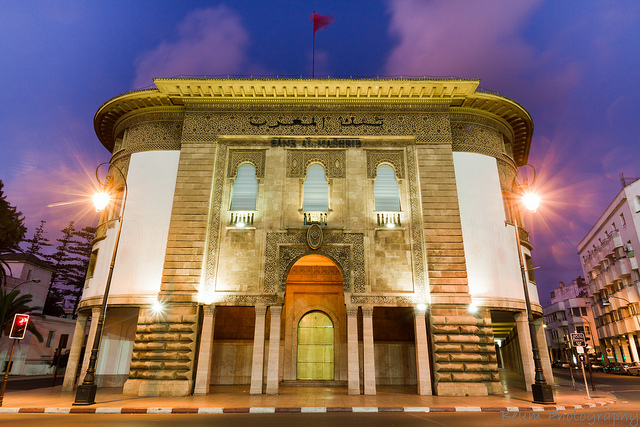Morocco’s Central Bank has decided to keep its key interest rates unchanged at 3 pc due to persistent inflation fueled by soaring food prices and the war in Ukraine which continues to affect global economy.
The decision was made Tuesday by the Board of Bank Al Maghrib during its second quarterly meeting held to discuss the country’s economic, monetary, and financial situation.
After three successive increases of its key rates, the Bank decided to mark a pause in the monetary policy tightening cycle and maintain its rates unchanged as inflation continued to accelerate, reaching a peak of 10.1 pc in February 2023.
Since then, inflation has decelerated, yet remains at high levels due to the rise in fresh food prices, returning to 8.2 pc in March, to 7.8 pc in April and to 7.1 pc in May.
According to the Bank’s projection, inflation is expected to reach 6.2 pc this year and 3.8 pc in 2024. Two consecutive years of drought combined with a broadly adverse external environment continue to weigh on economic activity.
Given the Department of Agriculture’s estimate of cereal production at 55.1 million quintals, growth in agricultural value added would be limited to 1.6 pc in 2023, after contracting by 12.9 pc a year earlier.
In 2024, assuming a cereal harvest of 70 million quintals, it is forecast to grow by 5.5%. For non-agricultural sectors, growth in value added is set to slow from 3 % in 2022 to 2.5 % in 2023, before accelerating to 3.2 % in 2024.
After rebounding to 8 pc in 2021 and decelerating to 1.3 pc in 2022, Bank Al-Maghrib expects the country’s economy to grow by 2.4 pc this year, before improving to 3.3 pc in 2024.
Exports are expected to drop by 2.8 pc due to lower sales of phosphate and derivatives, before rising by 6 pc in 2024, boosted by the increase of shipments from the automotive sector. At the same time, imports are expected to fall by 2.2 pc, notably as a result of the easing of the energy bill, and to rise by 2.9 pc in 2024, mainly due to the anticipated increase in purchases of finished consumer goods and capital goods.
In addition, with tourism expected to continue its recovery, travel revenues would rise by 14.9 pc to $ 10 billion in 2023 and remain approximately stable in 2024, while remittances are projected to grow by 3.4 pc to reach $ 11.4 billion in 2023 and $ 11.8 billion in 2024.



